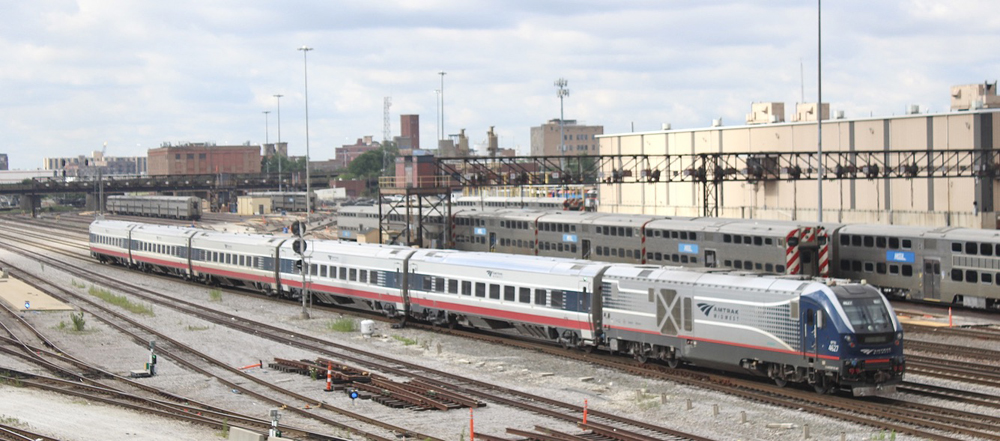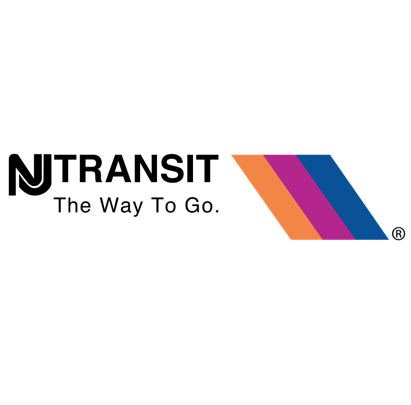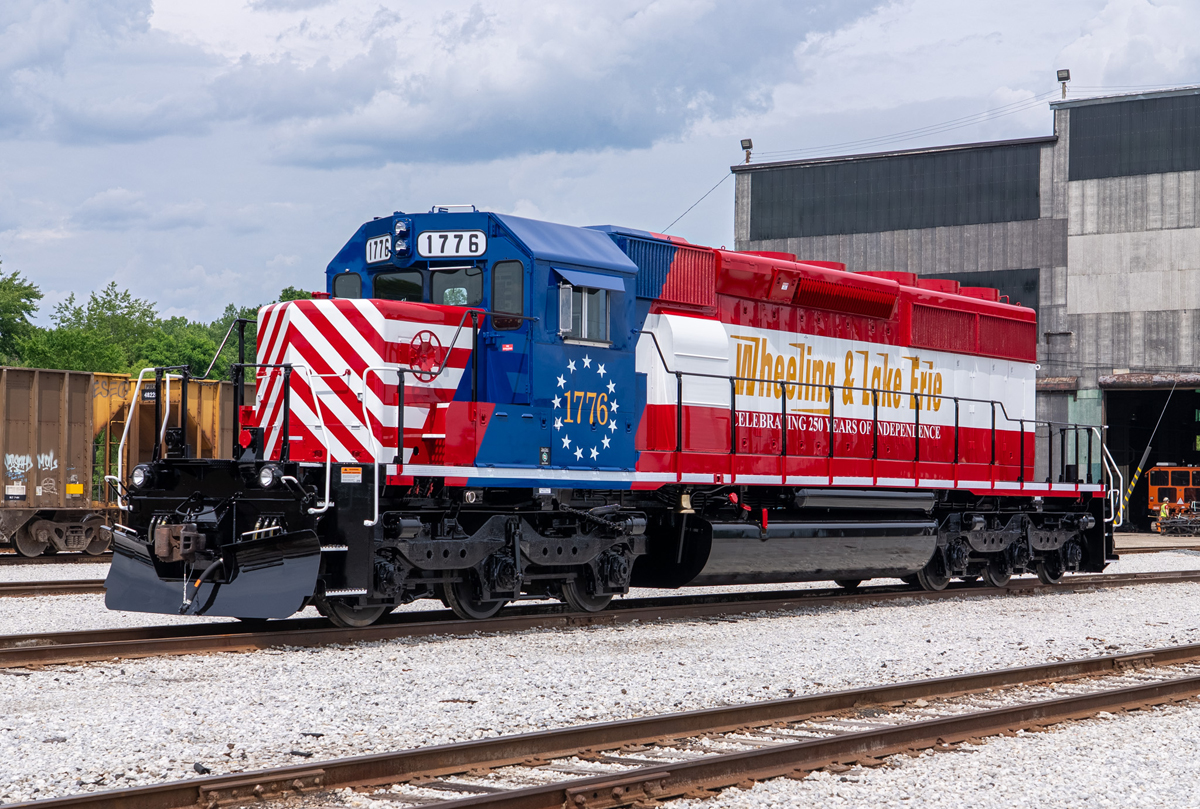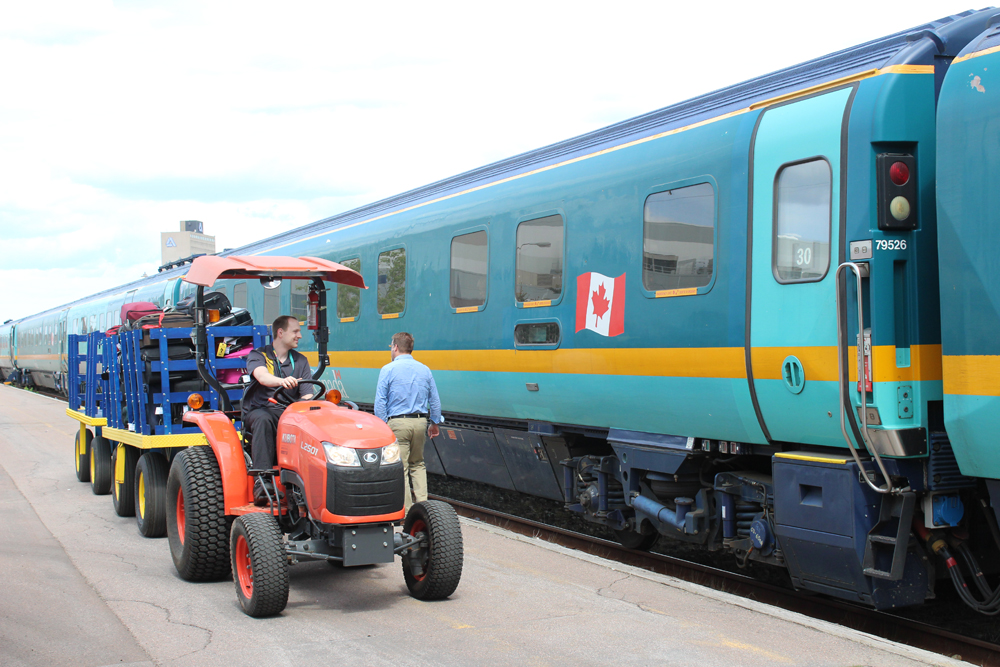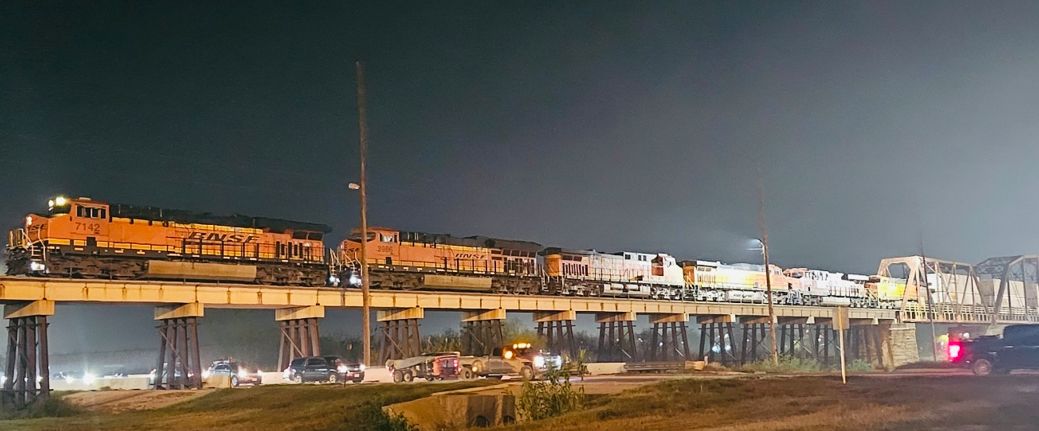
PUERTO VALLARTA, Mexico — BNSF Railway and intermodal partner J.B. Hunt have launched cross-border Quantum de Mexico premium service in conjunction with GMXT’s Ferromex.
Like domestic Quantum service in the U.S., Quantum de Mexico takes aim at highly service-sensitive freight that has never moved on rails before, the companies announced this morning at the Mexican Intermodal Transport Association conference.
Quantum de Mexico promises a 95% or greater on-time delivery rate on schedules that are up to a day faster than traditional intermodal service. Priority loading and unloading at BNSF and FXE terminals, as well as tighter dray moves at origin and destination, enable the faster transit times.
The service aims to attract freight that needs to arrive just in time at the customer’s dock.
“When you think about the main value proposition for Quantum, both U.S. and here in Mexico, that is consistent service at 95% on time or better. And with some customers, speed is a key part of that. With others, it’s not,” Spencer Frazier, executive vice president of sales and marketing at J.B. Hunt, said in an interview today.
J.B. Hunt customizes the dock-to-dock service plans around each customer’s needs, and coordinates the rail aspects with BNSF and Ferromex. As with domestic Quantum service, J.B. Hunt, BNSF, and GMXT personnel will continuously monitor all loads from BNSF’s headquarters in Fort Worth, Texas.
This so-called watchtower allows the team to call an audible if a Quantum shipment is delayed en route. A late container might be put on a faster train or be dropped off at a different terminal so it can move the rest of the way via highway.
Schedule recoverability and timely communication have been a key to retaining 100% of Quantum’s domestic customers since the service was launched 18 months ago, Jon Gabriel, BNSF’s group vice president of consumer products, tells Trains News Wire. “Those same building blocks … set us up for success here with a Mexico product,” he says.
The cross-border intermodal opportunity is huge: Intermodal currently captures just a 4% share of the freight moving between the U.S. and Mexico, compared to 10% to 12% market share of long-haul moves in the U.S. “That leads us to believe there’s somewhere between 4 to 5 million units of potential convertible intermodal traffic that could come over,” Gabriel says.
J.B. Hunt believes cross-border intermodal could reach the same market share as domestic service, Frazier says. “Our objective is to expand the market,” Frazier says. “We’re not satisfied with where it’s at today.”
One of the advantages of intermodal, says Luis Hernández, vice president intermodal at GMXT, is that it avoids lengthy and unpredictable delays at congested highway border crossings. “This is seamless and it’s just a steel-wheel interchange at the border,” he says.
Quantum de Mexico will connect major cities and industrial hubs in both countries. Primary markets include Chicago, Dallas-Fort Worth, the West Coast, and eastern destinations in the U.S.; and Mexico City, Guadalajara, and Monterrey in Mexico.
Quantum de Mexico loads will ride the existing BNSF-FXE intermodal train pair. In late December 2023 BNSF and J.B. Hunt shifted their cross-border traffic to the Eagle Pass, Texas, gateway and the interchange with Ferromex across the Rio Grande at Piedras Negras, Mexico.
The traffic previously moved via CPKC and CPKC de Mexico through the border crossing at Laredo, Texas. The Eagle Pass route is up to a day faster, BNSF has said.
Gabriel says the existing interline service has run smoothly with Ferromex despite strong growth in J.B. Hunt’s cross-border business. “The industry hasn’t always demonstrated growth with service improvements and resiliency. In fact, ours has gotten better over time with the investments we’ve made on our network, the investments J.B. Hunt’s made here, and certainly the Grupo Mexico investment and commitment to intermodal, which has been tremendous,” he says.
BNSF’s terminal at Alliance, Texas, just north of Fort Worth, will serve as a hub for Quantum de Mexico traffic, a role it also plays for J.B. Hunt’s regular cross-border service. Trains will set out and pick up well cars with containers bound to or from Mexico.
Quantum de Mexico will target customers who handle consumer goods and retail shipments, manufactured products, and auto parts, Frazier says.
Cross-border freight is expected to grow 4% to 6% annually over the next five years, despite current trade tensions. “We’re all confident that that’s going to work itself out and going to continue to grow to hit those numbers,” Frazier says. “And we want to be the ones that can expand the intermodal market.”
Ferromex also partners with Union Pacific and Canadian National on their interline Falcon Premium intermodal service.
The Quantum service, which BNSF and J.B. Hunt introduced in the U.S. in November 2023, revives the name that Santa Fe and J.B. Hunt used when they began their TOFC alliance 36 years ago.
The unique revenue-sharing agreement between BNSF and J.B. Hunt dates to the 1989 business car handshake deal between Santa Fe President Michael Haverty and J.B. Hunt, who founded the eponymous firm, saw the potential of intermodal, and became the first trucking company to align itself with a railroad.






